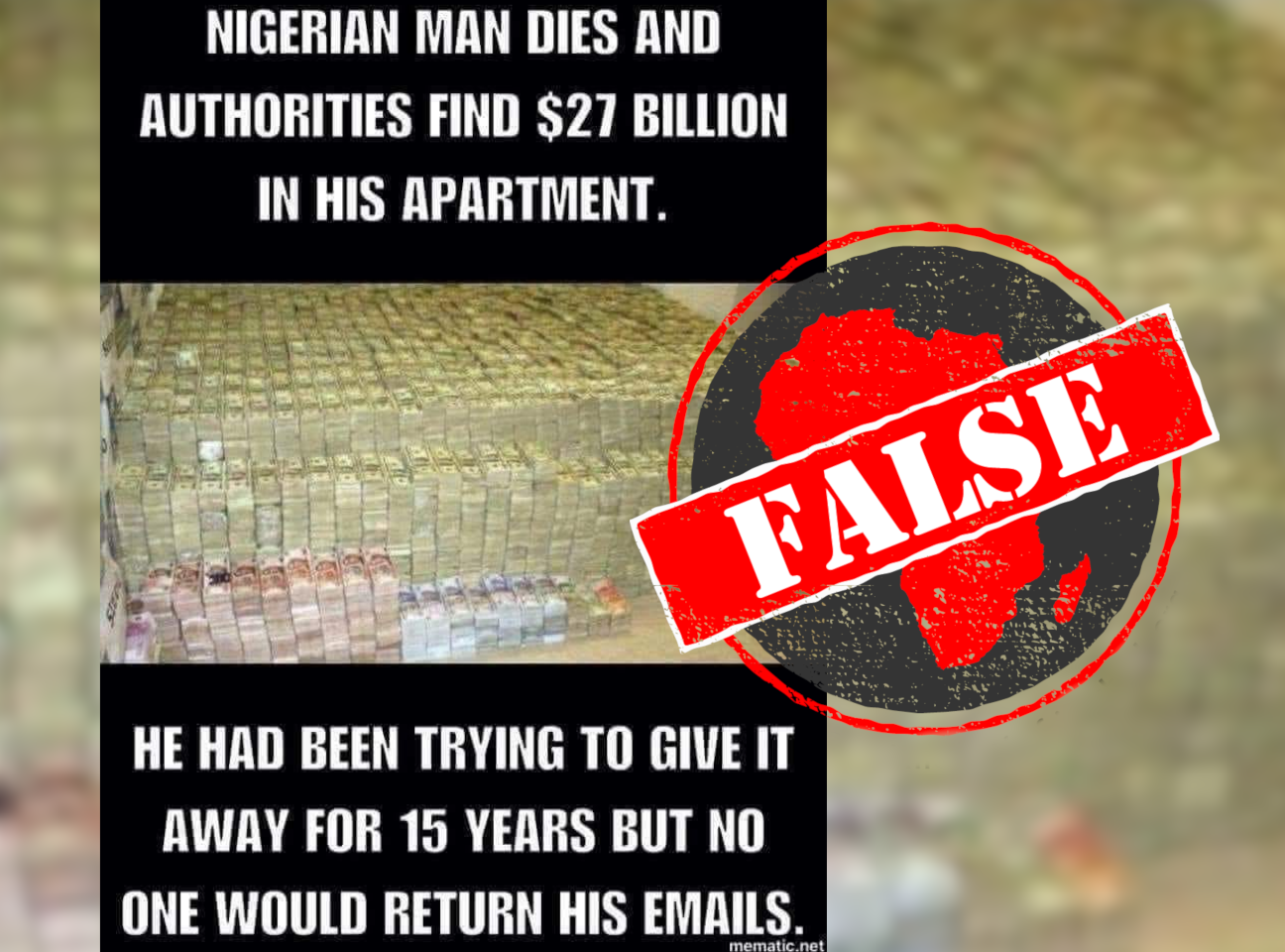“Nigerian man dies and authorities find US$27 billion in his apartment” begins a graphic posted on Facebook. “He has been trying to give it away for 15 years but no one would return his email.”
The graphic, posted on 17 June 2022, includes a photo of piles of cash stacked in a room.
It has been reposted 50 times since publication.
One of the comments on the post asked how the man got the money, another claimed Nigerian officials “will find a way to share the money among them”. Others thought it was a joke.
Could the claim be true?

No news about ‘the discovery’
The post doesn’t provide any information about when and where this was supposed to have happened.
And we found no news of such a discovery. In 2017, about $43 million was discovered in an apartment in Ikoyi, Lagos. It was in the news for several weeks.
If the claim shared on Facebook in June 2022 was true, the “deceased Nigerian” would be at least two times richer than Africa’s richest man, Aliko Dangote, who is worth $13.8 billion. Dangote is Nigerian.
Also, reverse image searches show the photo in the graphic has been used in similar claims with the amount varying from $15 billion to $45 billion.
The claim is not supported by any evidence.
Republish our content for free
For publishers: what to do if your post is rated false
A fact-checker has rated your Facebook or Instagram post as “false”, “altered”, “partly false” or “missing context”. This could have serious consequences. What do you do?
Click on our guide for the steps you should follow.
Publishers guideAfrica Check teams up with Facebook
Africa Check is a partner in Meta's third-party fact-checking programme to help stop the spread of false information on social media.
The content we rate as “false” will be downgraded on Facebook and Instagram. This means fewer people will see it.
You can also help identify false information on Facebook. This guide explains how.


Add new comment